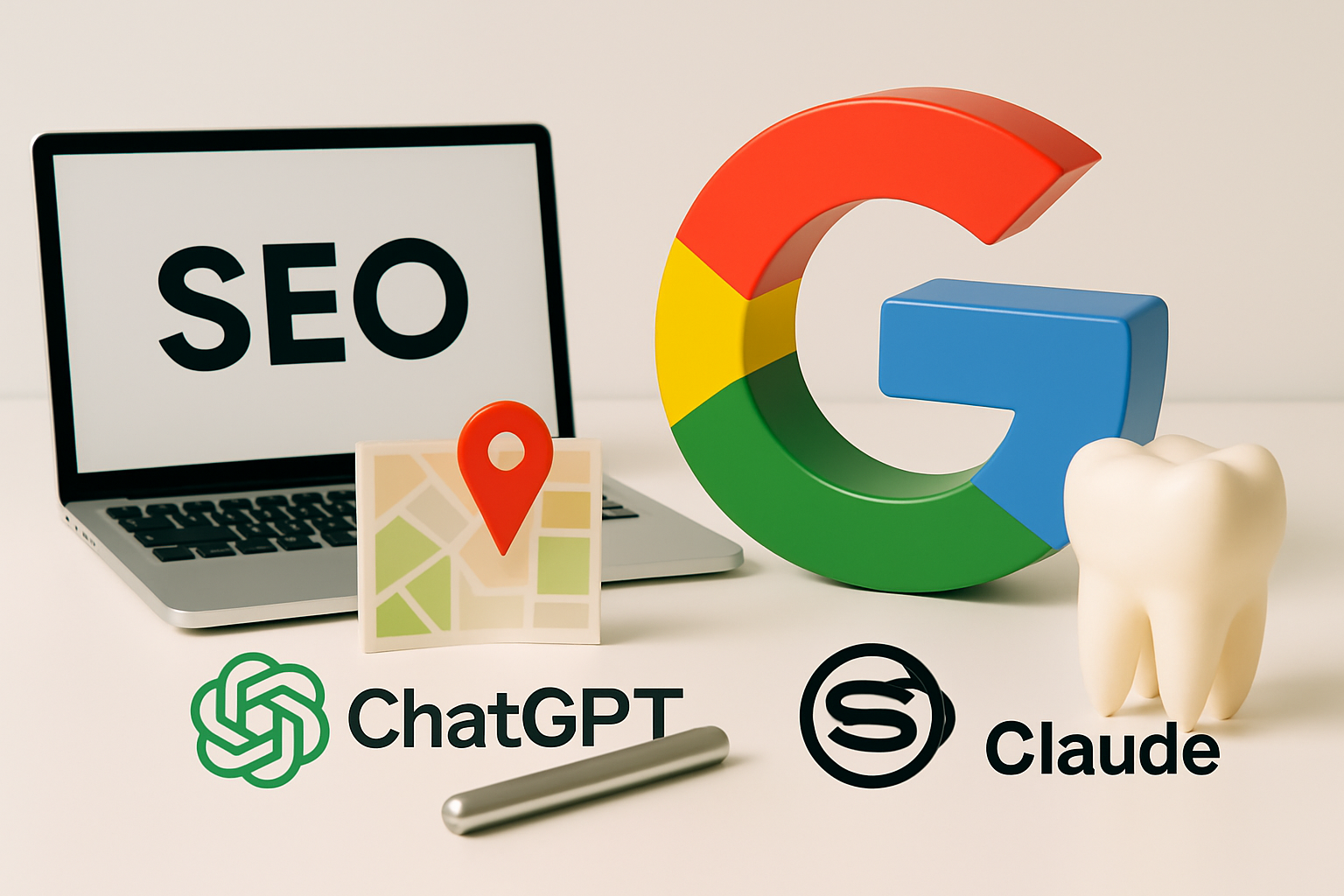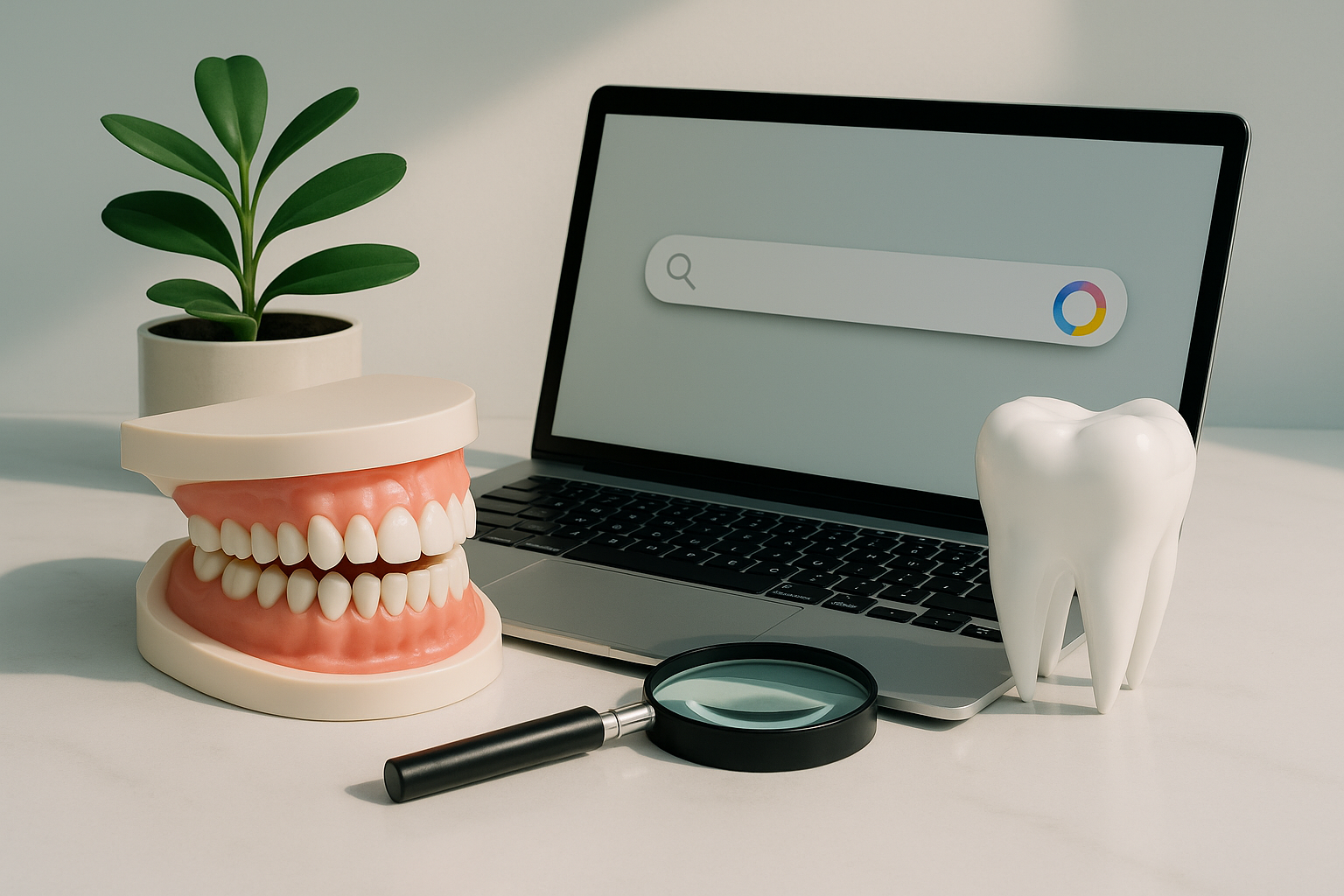Dental AI: What It Can (and Can't) Do for Your Practice in 2025 – A Digital Floss Perspective
The integration of Artificial Intelligence (AI) into various industries is no longer a futuristic concept; it's a present-day reality, and dentistry is no exception. From enhancing diagnostic capabilities to streamlining administrative tasks and revolutionizing marketing efforts, AI promises to reshape how dental practices operate and interact with their patients. However, amidst the hype and rapid advancements, it's crucial for dental professionals to understand precisely what AI can, and more importantly, what it cannot do for their practice in 2025.
At Digital Floss, we believe in leveraging cutting-edge technology to empower dental practices, not to replace the invaluable human element. Our perspective on AI in dentistry is grounded in practical application and strategic integration. This article will provide a balanced and insightful overview of AI's current capabilities and limitations within the dental field, offering a Digital Floss perspective on how practices can harness its power for growth and efficiency while maintaining the personalized care that defines their profession. We'll explore AI's role in diagnostics, practice management, and, critically, in modern dental marketing, helping you navigate the AI landscape with clarity and confidence.
What AI Can Do for Your Dental Practice in 2025: Capabilities and Applications
Artificial intelligence is rapidly becoming an indispensable tool across various facets of dental practice, offering unprecedented opportunities for enhanced efficiency, accuracy, and patient care. In 2025, AI’s capabilities extend far beyond simple automation, providing sophisticated solutions that were once unimaginable.
Here’s a breakdown of key areas where AI is making a significant impact:
1. Enhanced Diagnostics and Treatment Planning
One of the most transformative applications of AI in dentistry is in diagnostic imaging. AI algorithms can analyze X-rays, CT scans, and intraoral images with remarkable precision, often identifying subtle anomalies that might be missed by the human eye. This leads to:
Early Disease Detection: AI can detect early signs of caries, periodontal disease, and even oral cancers with high accuracy, enabling earlier intervention and better patient outcomes.
Improved Accuracy: By cross-referencing vast databases of images, AI can provide a second opinion, reducing diagnostic errors and increasing confidence in treatment plans.
Automated Measurements and Analysis: AI tools can automatically measure bone loss, analyze tooth morphology, and assist in orthodontic treatment planning, saving clinicians valuable time and ensuring consistency.
Predictive Analytics: Some AI systems can predict the progression of certain conditions or the success rate of specific treatments based on patient data, aiding in more personalized and effective treatment strategies.
2. Streamlined Practice Management and Operations
AI is revolutionizing the administrative and operational aspects of dental practices, freeing up staff time and improving overall efficiency:
- Automated Scheduling and Reminders: AI-powered chatbots and virtual assistants can handle patient inquiries, schedule appointments, and send automated reminders, reducing no-shows and administrative burden.
- Insurance Verification and Claims Processing: AI can quickly verify insurance eligibility, process claims, and identify potential billing errors, accelerating revenue cycles and minimizing rejections.
- Inventory Management: AI systems can track dental supplies, predict usage patterns, and automate reordering, ensuring optimal stock levels and reducing waste.
- Patient Communication: AI-driven platforms can personalize patient communications, sending targeted messages based on treatment history, upcoming appointments, or specific health needs, enhancing patient engagement.
3. Revolutionizing Dental Marketing and Patient Acquisition
For Digital Floss, AI is a game-changer in how we approach dental marketing. It allows for unprecedented levels of personalization, targeting, and efficiency in reaching and converting prospective patients:
- Hyper-Targeted Advertising: AI algorithms analyze vast amounts of data to identify ideal patient demographics, interests, and online behaviors, allowing for highly precise ad targeting on platforms like social media and search engines. This ensures your marketing budget is spent on reaching those most likely to become patients.
- Personalized Content Delivery: AI can dynamically tailor website content, email campaigns, and social media messages to individual patient preferences and stages in their journey, increasing engagement and conversion rates.
- Predictive Lead Scoring: AI can assess the likelihood of a lead converting into a patient based on their online interactions, allowing practices to prioritize follow-up efforts on the most promising prospects.
- Chatbots and Virtual Assistants for Lead Qualification: AI-powered chatbots on websites and social media can engage with visitors 24/7, answer common questions, qualify leads, and even assist with appointment booking, ensuring no potential patient is missed.
- SEO and Content Optimization: As discussed in our previous article, AI is increasingly influencing search engine algorithms. Digital Floss leverages AI insights to optimize website content, social media posts, and local listings for voice search and AI-driven queries, ensuring your practice ranks higher and is easily discoverable by modern search methods.
- Reputation Management: AI tools can monitor online reviews and social media mentions, alerting practices to new feedback and even suggesting appropriate responses, helping maintain a positive online reputation.
By strategically integrating AI into these areas, dental practices can not only enhance their clinical capabilities and operational efficiency but also significantly amplify their marketing reach and effectiveness, leading to sustainable growth and improved patient care.
What AI Can't Do for Your Dental Practice in 2025: Limitations and the Human Element
While the capabilities of AI in dentistry are impressive and continue to expand, it’s equally important to understand its inherent limitations. AI is a powerful tool, but it is not a panacea, nor can it fully replace the nuanced, empathetic, and complex decision-making processes that are central to human dental care. In 2025, several critical areas remain firmly within the domain of human expertise and interaction.
Here are the key limitations of AI in dental practice:
Lack of Empathy and Emotional Intelligence:
Dentistry is a deeply personal profession that often involves addressing patient anxieties, fears, and emotional needs. AI, by its very nature, lacks the capacity for genuine empathy, compassion, and emotional intelligence. It cannot provide the comforting touch, the reassuring tone, or the intuitive understanding of a patient’s unspoken concerns that a human dentist or team member can.
Building trust, a cornerstone of a successful dental practice, relies heavily on human connection. AI cannot replicate the rapport, the personal relationship, or the intuitive judgment required to navigate sensitive patient interactions.
Inability to Handle Unforeseen or Novel Situations:
AI systems are trained on vast datasets. While this makes them excellent at recognizing patterns and making predictions based on past data, they struggle with truly novel or unforeseen situations that fall outside their training parameters. Human dentists, with their critical thinking, adaptability, and years of diverse experience, can diagnose and treat complex, atypical cases that AI might misinterpret or fail to recognize.
Clinical judgment often involves synthesizing information from multiple, sometimes conflicting, sources and making decisions in ambiguous situations. AI’s rule-based or pattern-matching approach can fall short here.
Ethical and Legal Responsibility:
Ultimately, the ethical and legal responsibility for patient care rests with the human dentist. While AI can provide diagnostic support or treatment suggestions, it cannot bear the legal burden of a misdiagnosis or an unsuccessful treatment. The final decision-making authority and accountability remain with the human practitioner.
Questions of data privacy, algorithmic bias, and the ethical implications of AI-driven recommendations are complex and require human oversight and regulation.
Absence of Creativity and Innovation:
While AI can generate content or suggest marketing strategies based on existing patterns, it lacks true creativity, intuition, and the ability to innovate beyond its programming. The nuanced art of cosmetic dentistry, the creative problem-solving required for complex restorative cases, or the development of truly groundbreaking marketing campaigns still require human ingenuity.
Limitations in Physical Dexterity and Manual Skills:
Despite advancements in robotics, AI cannot perform the intricate manual procedures required in dentistry. Surgical precision, delicate manipulations, and the tactile feedback necessary for procedures like fillings, extractions, or root canals are exclusively human skills.
Contextual Understanding Beyond Data:
AI processes data. It doesn't inherently understand the broader human context, cultural nuances, or individual patient preferences that might influence treatment decisions or communication strategies. A human dentist understands that a patient's financial situation, lifestyle, or personal values might impact their choices, and can adapt accordingly.
In essence, AI serves as a powerful assistant, augmenting human capabilities and automating repetitive tasks. However, the core of dentistry—the compassionate care, the complex clinical judgment, the ethical responsibility, and the personal connection—remains, and will continue to remain, uniquely human. Digital Floss leverages AI to enhance your practice’s reach and efficiency, allowing your team to focus more on these invaluable human aspects of patient care.
Conclusion: Harnessing AI with Human Intelligence – The Digital Floss Approach
Artificial intelligence is undeniably transforming the dental industry, offering unprecedented opportunities for enhanced diagnostics, streamlined operations, and highly effective marketing. From automating routine tasks to providing predictive insights and optimizing your online visibility for modern search, AI is a powerful ally for the dental practice of 2025.
However, it is crucial to remember that AI is a tool, not a replacement for the human touch. The empathy, clinical judgment, ethical responsibility, and personal connection that define exceptional dental care remain the exclusive domain of human professionals. The most successful practices will be those that strategically integrate AI to augment their capabilities, allowing their teams to focus more on building patient relationships and delivering personalized, high-quality care.
At Digital Floss, we are experts in navigating this evolving landscape. We understand the nuances of AI and how to apply its power specifically within the dental marketing context. We help you leverage AI for hyper-targeted advertising, personalized content delivery, and superior search engine optimization, ensuring your practice is found by the right patients at the right time. Our approach is always to use AI to enhance, not diminish, the human element of your practice.
Are you ready to strategically integrate AI into your dental practice’s marketing efforts without losing the personal touch that defines your brand? Contact Digital Floss today for a free marketing audit. Let us show you how to harness the power of AI to drive efficiency, attract more patients, and elevate your practice to new heights, all while preserving the invaluable human connection that sets you apart.












